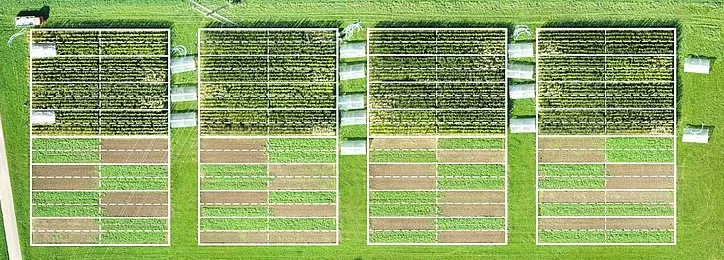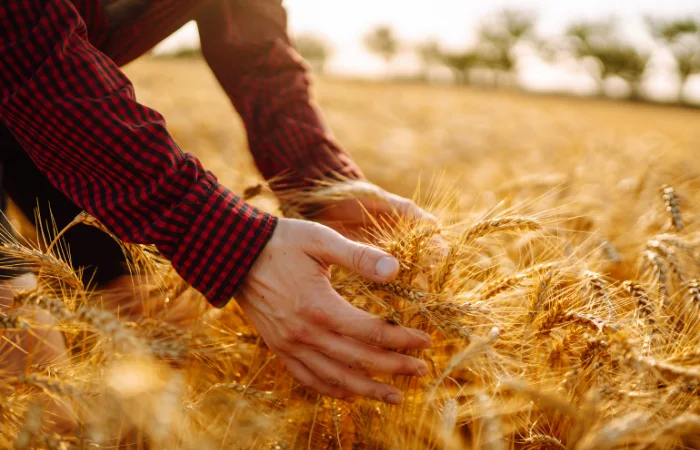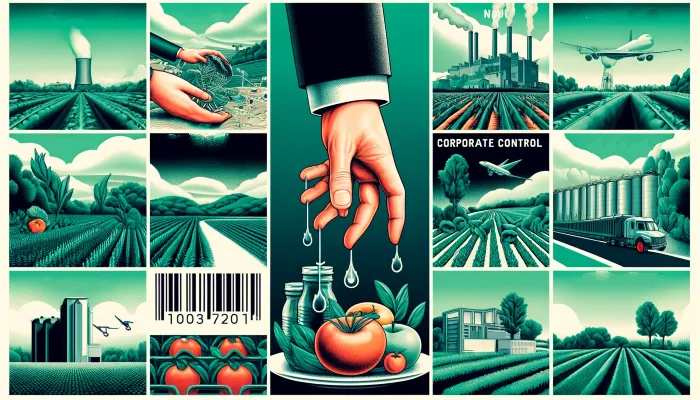A groundbreaking study conducted by a Swiss research team has revealed that the use of mycorrhizal fungi in soil can significantly boost plant yields, presenting a potential sustainable alternative to conventional fertilizers and pesticides. This approach, tested in a comprehensive field trial, has shown an increase in plant yield of up to 40%.
Farmed lands are often plagued by various pathogens that adversely affect plant growth and reduce yields. In an effort to find eco-friendly solutions that maintain or enhance crop yields without relying on chemical inputs, the team focused on mycorrhizal fungi. These beneficial organisms aid plants in nutrient acquisition and are viewed as a promising substitute for agricultural chemicals due to their natural ability to improve plant health.

The research, a collaborative effort involving the universities of Zurich and Basel, Agroscope, and the Research Institute of Organic Agriculture (FiBL), marks the first large-scale demonstration of the effectiveness of applying mycorrhizal fungi in fields. Across 800 trial plots at 54 maize farms in northern and eastern Switzerland, the fungi were introduced into the soil prior to planting.

Marcel Van der Heijden, a soil ecologist at the University of Zurich and Agroscope and co-lead of the study, noted the significant impact of this inoculation. “On a quarter of the plots, the mycorrhizal fungi enabled up to 40% better yields. That’s huge,” he stated.
However, the team observed varied results across different plots, with a third showing no yield increase and, in some cases, a decrease. The reasons behind this variability were initially unclear.
Further investigation into a range of soil properties, including microbial biodiversity, led to an intriguing discovery. Stefanie Lutz from Agroscope, a co-first author of the study, explained, “We discovered that the inoculation functioned best when there were lots of fungal pathogens already in the soil.”
The mycorrhizal fungi essentially acted as a protective barrier against these pathogens, sustaining normal yields in fields that would otherwise suffer losses. On the other hand, fields with low pathogen levels showed minimal benefit from the fungi, as noted by Natacha Bodenhausen, another first author from the Research Institute of Organic Agriculture.
The study’s objective extended beyond demonstrating the fungi’s effectiveness to predicting the conditions where mycorrhizal inoculation would be successful. Klaus Schläppi of the University of Basel, co-lead of the study, highlighted their predictive capability: “With just a few soil indicators—mainly soil fungi—we were able to predict the success of inoculation in nine out of 10 fields, and thus could also predict the harvest yield even before the field season.”
This predictability is key to selectively using the fungi in fields where they will be most effective, a crucial step in developing these methods for reliable agricultural use.
While further research is needed to determine the most efficient methods for spreading the fungi over large areas, the positive outcomes of this trial are a significant advancement toward more sustainable agricultural practices.
More To Discover
- Is “Regenerative Agriculture” the Solution? Exploring Sustainable Farming Approaches
- Why So Many Vertical Farms Fail: An In-Depth Analysis of the 9 Biggest Mistakes They Have In Common
- Biochar’s Promise for Modern Agriculture Requires Unlocking The Secrets of Ancient Soil Technology
- How to Raise pH in Hydroponics Using Baking Soda
Marcel van der Heijden summarized the implications of their findings, stating, “the results of this field trial represent a big step toward a more sustainable agriculture.”
Source: Nature Microbiology




















